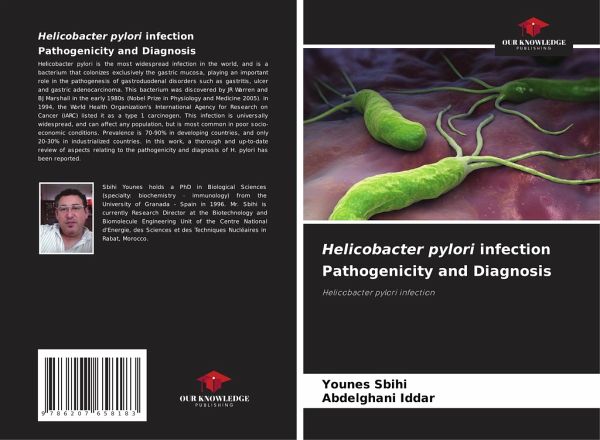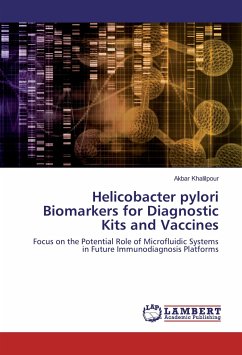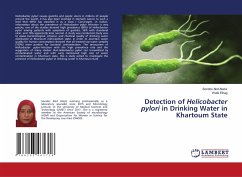
Helicobacter pylori infection Pathogenicity and Diagnosis
Helicobacter pylori infection
Versandkostenfrei!
Versandfertig in 6-10 Tagen
30,99 €
inkl. MwSt.

PAYBACK Punkte
15 °P sammeln!
Helicobacter pylori is the most widespread infection in the world, and is a bacterium that colonizes exclusively the gastric mucosa, playing an important role in the pathogenesis of gastroduodenal disorders such as gastritis, ulcer and gastric adenocarcinoma. This bacterium was discovered by JR Warren and BJ Marshall in the early 1980s (Nobel Prize in Physiology and Medicine 2005). In 1994, the World Health Organization's International Agency for Research on Cancer (IARC) listed it as a type 1 carcinogen. This infection is universally widespread, and can affect any population, but is most comm...
Helicobacter pylori is the most widespread infection in the world, and is a bacterium that colonizes exclusively the gastric mucosa, playing an important role in the pathogenesis of gastroduodenal disorders such as gastritis, ulcer and gastric adenocarcinoma. This bacterium was discovered by JR Warren and BJ Marshall in the early 1980s (Nobel Prize in Physiology and Medicine 2005). In 1994, the World Health Organization's International Agency for Research on Cancer (IARC) listed it as a type 1 carcinogen. This infection is universally widespread, and can affect any population, but is most common in poor socio-economic conditions. Prevalence is 70-90% in developing countries, and only 20-30% in industrialized countries. In this work, a thorough and up-to-date review of aspects relating to the pathogenicity and diagnosis of H. pylori has been reported.














